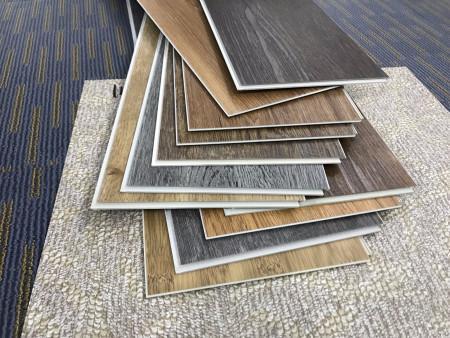

 Industry News
Industry News
Location:Homepage > Media Center > Industry News > Cork Flooring: Exploring the Pros and Cons Is Cork Flooring the Ideal Choice for You?
Cork Flooring: Exploring the Pros and Cons
Is Cork Flooring the Ideal Choice for You?
Exploring Cork Flooring: Advantages and Considerations

Cork flooring's innate qualities, including its natural insect repellency, insulation properties, and soft texture, render it an appealing choice for various home applications. Cork, derived from the bark of the cork oak tree, undergoes a process of grinding, compression, and bonding with resins to produce flooring materials. Pros of Cork Flooring There are several compelling reasons to opt for cork flooring over conventional options like hardwood or tile:
Comfort: The softness of cork makes it ideal for areas where prolonged standing occurs, such as kitchens. Its cushioned surface also offers added safety, making it suitable for children's rooms and spaces frequented by older individuals.
Eco-Friendly: Sourced from cork oak trees, cork harvesting is renewable and sustainable. The bark is stripped without harming the tree, and cork is biodegradable and recyclable.
Natural Insect Repellency: Cork contains substances that naturally repel insects, making it resistant to infestation.
Insulation: Cork's natural insulation properties for both sound and temperature contribute to energy efficiency and a comfortable indoor environment.
DIY-Friendly: Cork flooring is popular among DIY enthusiasts due to its ease of installation and maintenance.

Cons of Cork Flooring Despite its many advantages, cork flooring presents some drawbacks to consider:
Limited Durability: Cork is not as durable as some other flooring materials, susceptible to scratches from pet claws and divots from heavy furniture.
Sealing Requirement: Regular resealing is necessary to protect cork flooring from water damage, typically every 5 to 7 years.
Fading Potential: Prolonged exposure to direct sunlight may lead to discoloration and uneven hues in cork flooring.

Cost Considerations Cork flooring costs range from $3 to $9 per square foot, influenced by factors like material thickness and quality of finish. Installation costs vary, with floating floor installation being more economical than glue-down methods.
Maintenance Routine sweeping or vacuuming removes dirt particles, while damp mopping periodically maintains cleanliness. Immediate cleanup of spills is essential to prevent staining. Resealing every few years helps preserve cork flooring's integrity and appearance.

Repair and Refinishing Cork flooring can be refinished periodically to refresh its surface, similar to hardwood. However, engineered cork flooring lacks this capability due to its thin surface layer.
Design and Installation Traditional cork flooring boasts a warm, natural aesthetic suitable for casual decor. Modern manufacturing techniques offer a range of designs mimicking hardwood, marble, and concrete. Installation options include glue-down and floating floor methods, accommodating various preferences and skill levels.
Cork vs. Bamboo Flooring Both cork and bamboo are renewable flooring options with distinct advantages. Bamboo is notably harder than cork, offering superior resistance to scratches and dents.
Is Cork Flooring Right for You?
Cork flooring appeals to those seeking warmth, comfort, and sustainability in their flooring choice. While it may develop a patina over time, it offers a budget-friendly alternative to hardwood with easy installation.
Alternatives to Consider If cork flooring doesn't meet your needs, several alternatives offer affordability and durability:
Bamboo: Renewable and durable, with a hardness surpassing cork.
Linoleum: Eco-friendly and cost-effective, available in various designs.
Laminate: Scratch-resistant and easy to install, resembling hardwood.
Vinyl: Water-resistant and affordable, albeit less environmentally friendly.
Tile: Durable and low maintenance, suitable for moisture-prone areas.
Ultimately, the decision depends on your preferences, lifestyle, and budget.